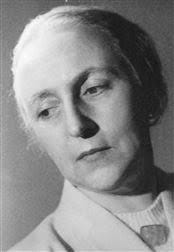What is ‘being’?
Our being is the index of our ability to ‘be’.
To be means to be present, aware of oneself and one’s surroundings simultaneously.
Our degree of presence changes with every moment, so our being is constantly in flux. My average level of being is very different if I start the day with meditation; However, every day it fluctuates in a given moment between a man who is completely asleep and a man who is in a state of self-consciousness.
Ouspensky says in the Fourth Way, “Generally, state of being means a greater or lesser consecutiveness of actions. When one thing contradicts another too much, it means a weak being. We do not realise that if a man is very inconsistent, it makes his knowledge unreliable.”
One of my teachers gave a simple formula to work on being. “Try to remain the same person in different circumstances.” If we observe ourselves, we see we are one person with our friends, another at the shop or in a company meeting. If we feel under pressure, we are a different person than in our holiday good mood.
Being is also the degree to which our four centres are working on the same thing at the same time. We have this kind of being in a mechanical way if we have developed a trade or profession to a high degree. However, this is only in one specific situation. To have it consciously means that our centres are always working in a unified way, focused on whatever is in the present moment.
Jeanne de Salzmann writes, “I begin to see that I have to be in contact with all my centres at the same time. Sometimes in one part, in another, the flow of energy is too strong or too weak. If I am too much in my head, the movement (toward a certain Presence) does not take place. Too much in my feelings or too much in my body, it is the same. There must be a corresponding intensity everywhere.” This correspondence, combined with self-awareness, is being.
Our being could also be defined as the ability to respond to unexpected events.
It consists of how frequently, how long and to what depth we are present every day.
It is also the ability to sustain presence, once it arises.
When we think of an action, we never think that actions can be radically different in themselves, in their quality. We do not see that, in their quality, actions can be as different from each other as different materials. We are blind to the forces that enter into our actions. Of course, we know that our action is meant to reach an aim, and we expect a result from it.
We always think of the aim, of the result, but never of the action itself. Nevertheless, the aim does not determine the action. It is the quality of the force entering an action that conditions it, that makes it automatic or creative. The miraculous is the entry into an action of a conscious force that knows why and how the action is performed.
Each act, everything we do—working with wood or stone, making a meal or a work of art, or thinking—can be either automatic or a creation. In a habitual state, we always proceed by repetition. When I have to produce something, the first thing I do is collect my memories on the subject. Then we put together all my experience and all our knowledge, and go forward. Our head applies itself, my body follows, and at times I am interested. But all this is merely automatic, and something in us knows it. There is no need for the action to be performed in one particular way or another, and we can do it at a tempo that pleases us. We may succeed in doing something well, but this has no power to change us. It contains no power of action, of creation.
The situation is completely different when our action is not a repetition but something new, an action that can only take place in the present moment to respond to a need we recognise right now. Then there is only one possible speed, and no other tempo can replace it. In a creative action, this comes from an irresistible life force, recognised as a truth we obey. And it is this force that sees what has to be done and directs my thought and body. It creates an act and an object, which contains a dynamism and intelligence that are irresistible.
To act in this way, we need to be free, without any image or idea, without thought trapped in memory. Freedom is not freedom from something, but freedom to be in the present, in a moment that never existed before. Action is immediate, without the intervention of thought. It is always new. To learn, we must have the freedom to look. The thinking is silent, entirely silent, free. It sees. In this state, we can understand and act with all the parts of ourselves. We can even act together with others, provided that, in this moment, all have the same seriousness and intensity.
An action depends on the way energy is engaged at the very moment we act. We have to be conscious of this at the moment of action and feel the movement of the energy going toward its goal. Once the movement has begun, it is too late to intervene. What has been launched no longer belongs to me. Nothing can stop it from giving the results that will follow, whether good or bad, strong or weak, pure or distorted.
Everything is thus determined by the disposition of our different centres at the moment of the action. Each act requires a certain freedom of my body, a one-pointedness of my thought, and an interest, a warmth for what is being done. This will bring us a new way of living, and we will be fearless.
There is a wonderful example of this in the film ‘Merry Christmas Mr Lawrence’, when the character played by David Bowie kisses the Commandant of the Japanese Prison Camp, who has tortured him.
I am fully aware that this post draws upon my long interest in what is called ‘The Fourth Way’, the Gurdjieff teaching.
It remains an important touchstone for me. I am also enjoying reading Cynthia Bourgeault’s book, ‘Eye of the Heart’. She also shares my background in ‘The Work’ and Christian mysticism. Just reading her book, I can see that we have read and considered the same writers over the many years of study.
It is also my hope that my study helps and sustains others in their search for Truth and greater self-knowledge.
Again, thank you for the support.
David #thebrazieroftruth








Thank you Joshua. I think as being increase and awareness, one is aware of inconsistencies in one’s persona and character. Krishnamurti would say it is enough to just see them, to witness, rather than trying to change them. Warm attention and ‘kindness’ will create an energetic change. I find the sensitivity to energy and people’s different energies really fascinating. As a poet you must be acutely aware of this. Really fine actors seem to have this.
“Try to remain the same person in different circumstances.” That's certainly a challenge, especially when one has to play differing roles in differing contexts. But good guidance nonetheless. I notice I respond to other people's energies. That's why some people light up a room, and others bring it down. It would be interesting to list the unchanging aspects of varied encounters. Perhaps 'kindness' in all circumstances would be a good starting point.